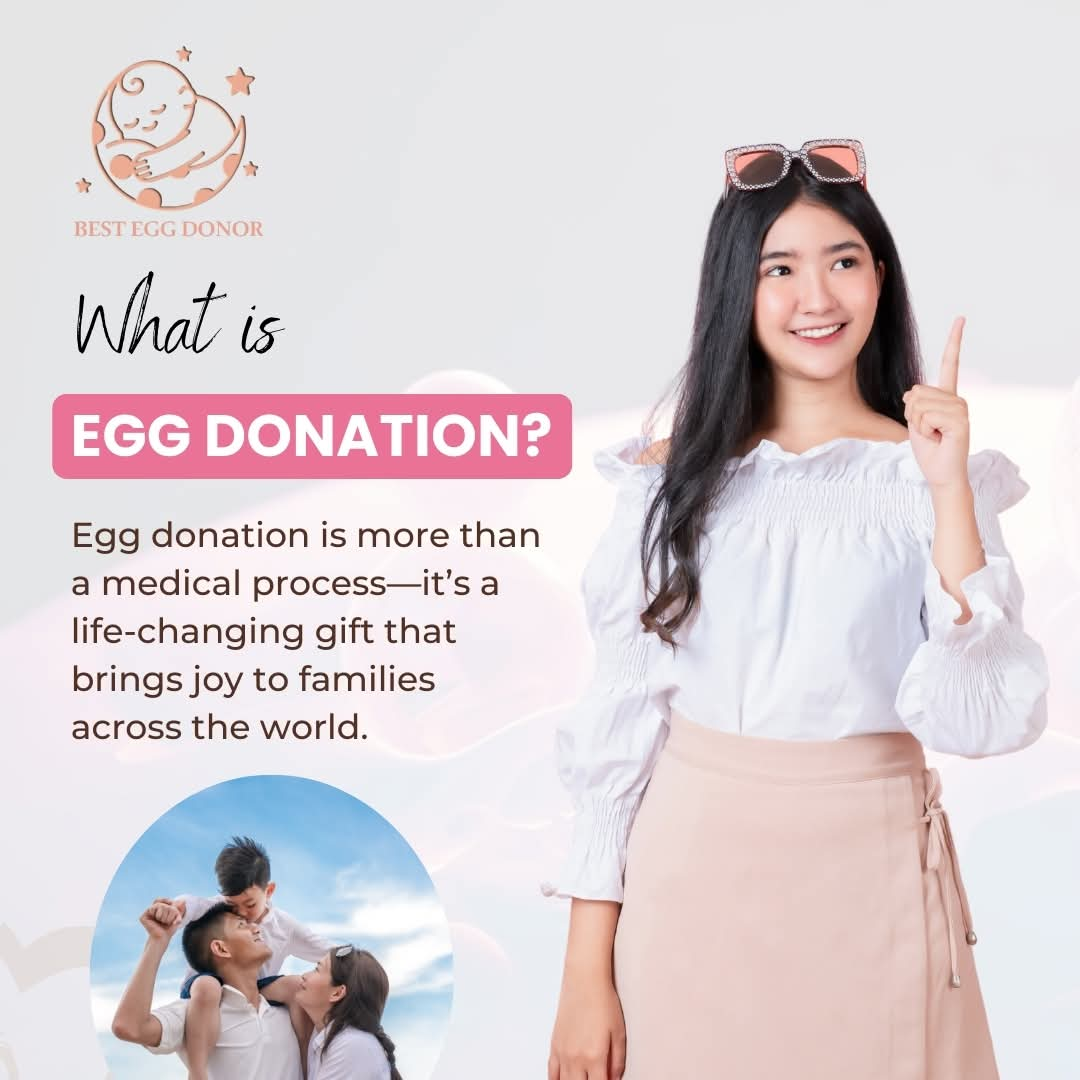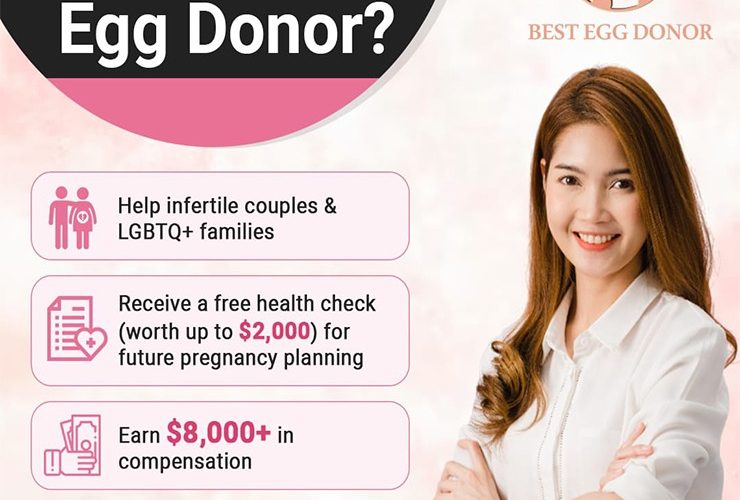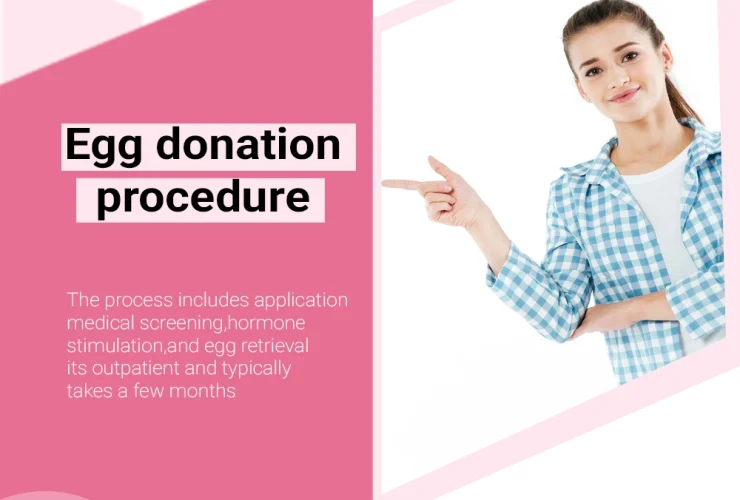Do you have any idea about how some families are created when the intended mothers are not able to or can’t use their eggs? Well, here the role of Egg Donation comes, which is truly a remarkable process, offering hope and a path towards parenthood for many couples. Egg donation simply involves a woman who is referred to as an egg donor donating one or more of her eggs to a woman who is a recipient to enable them to conceive. In its turn, these free eggs are used further and are fertilized with sperm of the recipient or the sperm donor.Hence, if the fertilisation turns out to be successful, an embryo is then created and transferred to the recipient’s uterus. This generally creates hope for a healthy pregnancy and the birth of a child.
Egg donation has probably become essentially important in the world of fertility treatments. For couples who are facing challenges in infertility, it turns out to be a vital opportunity to build a happy family they’ve dreamt of together. The women who have gone through early menopause, have a relatively lower number of eggs or poor quality due to certain medical treatments like chemotherapy, age factor or have any genetic conditions which they don’t want to pass on to their baby. For such women, it won’t be possible to conceive through their eggs.
This guide will talk about egg donation and other relatable things.
What is Egg Donation?
Don’t know what egg donation is? Well, it is the procedure during which a woman, the so-called egg donor, releases some of her eggs willingly, and the other female person who fails to use her own eggs because of various reasons desires to have a child. This procedure is likely to resemble a valuable asset to assist a person who desires to realize his/her goal of having a child.These donated eggs are like the beginning point for creating a pregnancy. Once the eggs are retrieved from the donor, they are then taken to a fertility lab where they are fertilised with the sperm, and the process goes on.
Who Needs Egg Donation?
1. Women with Premature Ovarian Failure
The primary ovarian insufficiency commonly known as the Premature Ovarian Failure (POF) is, in actuality, characterized by the discontinuation of the ovaries of a woman, and it normally occurs before a woman reaches 40 years of age. It further means that she may stop releasing eggs regularly, and if she releases, the quality of the eggs will be quite poor.
2. Older Women with Decreased Egg Quality
The woman starts to have a drop in both, the quality and quantity, of the eggs as she ages and especially, at the age of mid-30s. The remaining eggs have a higher chance of abnormality of chromosomes, and this gives rise to problems such as fertilisation, failure of implantation and even the predisposition to genetic disorders or miscarriage. More to this, when an older woman wants to have a pregnancy, then egg donation will provide an opportunity to achieve a successful pregnancy.
3. Same-sex Male Couples or Single Fathers
For same-sex male couples and even for single men who wish to become fathers with the help of surrogacy, egg donation is one of the main components. Well, it is because they do not have their eggs, and hence they’d have to rely upon others for conception. The donated eggs would then be fertilised with the sperm of one or both partners.
Who Can Become an Egg Donor?
1. Age Criteria (usually between 21-35 years)
There’s probably a certain age requirement for egg donors when it comes to fertility labs, and this limit can range between 21-35 years of age. The reason why this age is considered would be that most of the women in the age group do have a higher quality and quantity of eggs. At the same time, the younger eggs would likely be successfully fertilised, leading to successful pregnancies.
2. Physical and Mental Health Requirements
If you intend to become an egg donor, there are certain stringent physical and mental health requirements that you need to fall in. Donors usually go through certain medical examinations to ensure they’re free from any kind of infectious diseases or not. This would also include screenings for hepatitis, HIV AIDS, STDs and more.
Types of Egg Donation
1. Anonymous Donation
If opting for an anonymous egg donation, the recipient won’t be receiving any kind of information about the egg donor. Similarly, the donor also won’t be receiving any information about the recipient or any child born from the donation. The process happens between the agency and the fertility clinic, with no chance of getting any details for the possibility of future contact.
2. Known Donation
Known donation, which is also known as an open donation or an identified donation, is another type of donation where the recipient and the egg donor probably knows each other. Well, it could be a friend, a family member or someone who the recipient has met through a matching service.
The Egg Donation Process
1. Initial Screening and Medical Evaluation
The egg donation process begins with a thorough screening procedure of multiple donors. It involves completion of detailed questionnaires about their medical history, lifestyle, family background and more. If the donor passes through this initial screening, they would then progress towards a comprehensive medical examination.
2. Hormonal Stimulation and Monitoring
As and when the donor is approved, the next step would be that she would undergo the process of hormonal stimulation. This is done to encourage the development of multiple matured eggs in her ovaries. This step involves daily injections of fertility medications.
3. Egg Retrieval Procedure
As soon the follicles have reached the appropriate size and maturity level, the egg retrieval procedure is scheduled. Although, a minimal invasive surgical process that is usually performed under anaesthesia or light sedation.
4. Post-retrieval Recovery
Once the egg retrieval process is done, the next step would be the donor will be monitored for a short period in the fertility clinic before being discharged. Well, if the donor faces any symptoms including mild cramping, bloating or spotting for a few days, it’s common and not a sign of worry.
Conclusion
Egg donation usually stands as one of the most essential options associated with reproductive technologies. This is one of the tangible pathways to parenthood for couples who are facing various fertility challenges.






